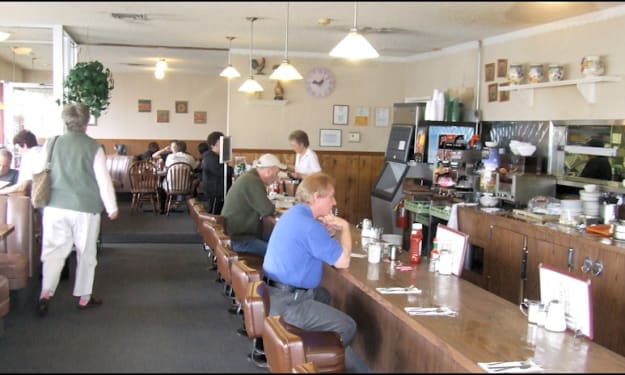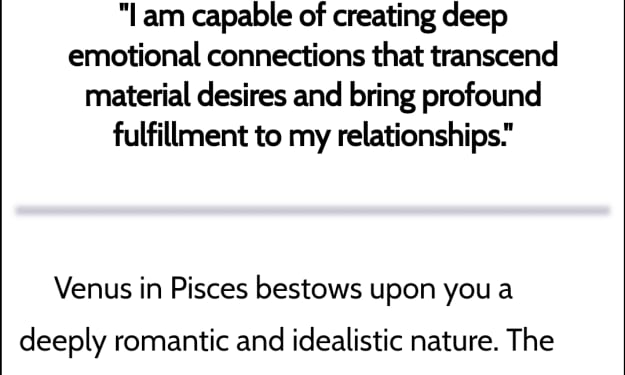
It didn’t seem possible. The images of him campaigning in his last election with his cane had shown him gaunt but still energetic. At ease with his cane, using it to wave to the crowds. Smiling eyes, exuding the Layton family energy. The thinning, greying hair and that mustache. Campaigning about hope, a brighter future for the many. Reaching the pinnacle as leader of the official opposition. Briefly moving into Stornoway -- the opposition leaders’ official residence in Ottawa’s Rockcliffe neighbourhood.
And then it all came tumbling down that awful Monday morning of August 22, 2011, when Jack Layton died.
I had known, along with the rest of Canada, that he had been dealt the cancer card and was struggling with it. But that day still shook all of us. I cried and my wife cried, as did so many others. Jack’s passing left a hole in our hearts, our souls. We felt that a part of our lives had been severed. Our collective hope for a better world seemed to lose its shape with his death.
I had known the man since my second year (1980-81) of studying journalism at Ryerson Polytechnical Institute in downtown Toronto, where I took his City Politics course. I wasn’t his best student. While one paper I wrote garnered an A-, the other only rated a C. I had known of him before then, from when I lived in Hudson, Quebec, down the street from his family in the 1970s. Jack, who was seven years older than me, had already moved out of the family home and the town, but his younger brother Dave and I shared train rides into John Abbott College, and a love of pick-up football. Together we had once survived a nasty game of rugby. I got pulled in when Dave told me we’d get free beer if we played a game for the local pub’s rugby team. The buzz from the beer lasted a few hours, the bruises and aching muscles a few days, and the memory of total defeat on the pitch, a lifetime. I also knew Jack’s dad, Bob Layton, because we both served on the College’s Board of Governors, and I was lucky to get rides home from him. Like his father before him, his kids and his grandchildren, Bob was dedicated to community service. I learned a lot from him during those rides. Particularly, I saw up close the same trait Jack had: a drive to help people find common ground. Solutions that met not only his own political agenda, but that welcomed and included the agendas of others.
My decision to take Jack’s political science class in my second year at Ryerson turned out to be the first step in a long friendship. While I was still a student, Jack hired me to work one of the cameras and do some reporting for a live show he hosted on Rogers Cable TV covering Toronto City Council. Sounds rinky-dink, but when the original live show and subsequent re-broadcasts aired, we were picking up 75,000 viewers every show. I was always amazed at those numbers and the range of people interested in local politics.
When Jack decided to run for City Council in 1981, he hired me to help run his first two election campaigns. In the first election he defeated a conservative who was being touted for higher office. Election Day I coordinated 600 canvassers and ran a literature committee made up of the future president of CBC Newsworld, a poli-sci prof and three highly regarded community leaders. Once Jack was installed on City Council, I became his first executive assistant. But our friendship wasn’t all about work. When Jack and his first wife Sally began the painful process of deciding to divorce, I was in the room, was asked to stay, for their first conversation about splitting up. Post breakup, I shared an apartment with him while he got settled into a new life. Years later, when he and Olivia Chow threw a wonderful wedding on the Toronto Islands, I was there. And when I got married in 1987, Jack was my best man. During his speech, he gleefully shared that I was the only student who had ever fallen asleep in his class (True, but just once -- I swear. In my defense, the classes were held late on Thursday evenings in a room that was hot and stuffy. Just saying).
Jack was the kind of boss who considered you an equal, a partner in achieving his goals. He was like that with everyone, and everyone liked working with him -- and it was with him, not for him. He gave us plenty of room to do what was important to us. I was able to take a leading role in things like saving the Roundhouse on the Railway Lands (we did). Other projects he let me run with: coaxing a new development near Bloor and Yonge to fund the purchase of an older apartment building for a co-op, and setting up a recognition program for community activists -- no matter their political stripe. He had my back and I had his.
After getting him re-elected in 1985 as his campaign manager, I got out of politics. I had run three elections in a year and was tired of the long hours and the crappy pay. Once I left, we were in contact only sporadically. Jack, first and foremost, was focused on politics. Not the stab-you-in-the-back and it’s-all-about-me politics, but solid work to improve people’s lives. That’s what drew me, and so many others, to him. But his singular focus 24/7 also meant he didn’t have a lot of time for simple social interactions.
The day after Jack died, I went to my office in downtown Toronto, a self-renovated space in a dilapidated building at Temperance and Yonge where I had recently launched what quickly became a successful small business. I felt distracted and unable to focus on work. I read on a local news outlet that memorial events for Jack were happening just around the corner in Nathan Phillips Square, the public gathering area in front of New City Hall.
When I arrived around lunch time hundreds of mourners had already gathered. His family, led by Olivia, were huddled in the middle of the square about to present their plans for a creative mourning process. Earlier they had strewn chalk around the Square and now they invited people to write or draw whatever they felt about Jack. Dave Layton saw me and waved me over to be part of the on-camera presentation. Standing behind Jack’s family, I was in awe of the growing numbers of people on the other side of the TV cameras. At that point I knew I wasn’t alone in my grief.
Thinking about it now, the gathering was like a large wake where people expressed themselves with street chalk instead of whisky. They wrote, they drew, they expressed their grief. And that was where I realized that my way to grieve my friend’s death would be to take in what these people had to say. I wandered about reading the inscriptions that were rapidly beginning to cover the 12-acre square. Many were simple messages of sorrow. Many repeated words of Jack’s that had inspired them. Most of them had never met Jack in person. Those who had met him described the impact of even a few words shared or overheard.
I wandered around, absorbing people’s chalked tributes. Not trying to make sense of his death -- no death of someone who still had a lot of living in them makes sense. Especially Jack, the embodiment of public service and inclusiveness. No, I couldn’t make sense of it, but I could try to develop a wider appreciation of the person, a lasting and solid impression to carry with me as long as I lived.
And then the power of TV kicked in. I had been seen on camera. As I roamed around the square reading the chalk tributes, people sought me out. Later, one, who was eating in the same Afghani restaurant where I was having lunch, waited for me to finish and then followed me out. Apologetically she stopped me to tell me about the time she had met Jack. Her story wasn’t earth-shattering. It wasn’t a moment in which the course of Canadian social justice changed. It was about a simple exchange of words. She felt heard, seen, and appreciated. She needed to share that with someone who’d been close to Jack. And she felt the better for it.
The rest of that day, similar things kept happening. Standing in line to get the streetcar south at the Spadina subway station, a woman with her young child tapped me on the shoulder and told me about a brief exchange she’d had with Jack. Later on, a friend who lives near me told me that Jack, while out canvassing, had encouraged him to get involved in a downtown community centre, which he did, and it turned out to be a rewarding experience.
Even Conservatives that I know had only good things to say about Jack. Not his politics, but how he treated them as people who had something worthwhile to contribute.
When Jack’s state funeral at Roy Thomson Hall took place five days later, Steven Page of Barenaked Ladies sang one of the best covers ever of Leonard Cohen’s “Hallelujah.” Inspired by Jack, he rivaled the power of k.d. lang’s take of the song at the 2010 Vancouver Olympics.
Many wanted to commemorate him. A statue of Jack on the famous two-seater bicycle he and Olivia commuted on was unveiled at the Toronto Ferry terminal, celebrating his love of the Toronto Islands and his favourite mode of transportation. A lecture series at Ryerson, named in Jack’s honour, aptly covered key issues on democracy and social justice. The list of other commemorations is long.
But what stays with me most all these years later is the voice of the people in Nathan Phillips Square. They felt a need to share with me, and by sharing, they helped fill that hole in me with warmth and companionship over the loss of a friend. The chalked messages. A living eulogy written by others that to this day sits in my gut, my heart, and my head, churning around every so often until Jack takes shape for me again. A massive multi-person eulogy about my friend.
It’s what I needed to wrap my head around the death of someone close to me. And to settle my heart. I needed to gather stories and piece together a picture of that person greater than the one in my head, more complete. Even one with warts and with darkness. That day outside City Hall I couldn’t stand back and observe, I needed to immerse myself in a sense of what Jack meant to so many people.
Here’s what stays with me from that day about my friend: Jack’s drive to make things better for all. His underlying need to bring people together in common purpose. His capacity to always find something good about someone, to always be helping. His ability to make people feel included and important to what was happening in the city. In the country.
Jack let me make mistakes and learn from them. He encouraged me to take on responsibilities that others didn’t think I had the skill to handle. To participate in meaningful work that helped others--helped them to find childcare, affordable housing, protection from police brutality, and so much more. It was through working with him that I made friendships that still exist almost 40 years on.
What stirred up this memory in me almost 10 years after the fact was something my cousin Pamela reposted on Facebook, written by Joanne Cacciatore PhD, a research professor at Arizona State University who focuses on traumatic loss and grief:
If you can't understand why someone is grieving so much, for so long, then consider yourself fortunate.
It wasn’t a eureka moment when I read that. It was more of a slow dawning. The more I thought about it the more it made sense to me. The hole in my life that Jack’s death left was still there.
When Jack died, I hadn’t been able to write the eulogy that might have helped me. My need to grieve hadn’t been sated.
When my Aunt Mary died in 2010, I delivered her eulogy. And when Jack’s younger brother Dave died more recently, I hurried back from a vacation to his memorial service to deliver the words our mutual friend Les Walsh had composed. Les was living in Thailand and couldn’t possibly be there. For both these losses, sharing stories of who these people were and what they meant to me helped close the hole in my soul that their passing left.
Now, nearly a decade after Jack’s death, I can answer back with my own eulogy for Jack. This is what Jack meant to me. He accepted me for who I am, appreciated me, and wanted me to succeed. Many Canadians may not have been lucky enough to know him personally, but they understood what he stood for: that it is possible to build something better without taking away from others.
About the Creator
Jim Adams
I've always been a storyteller. Either sharing stories verbally or documenting a business plan or procedure. Using events from my past, I create stories that will transport the reader to places and events of interest around the world.






Comments (1)
Very thoughtful. We'll done, sir.